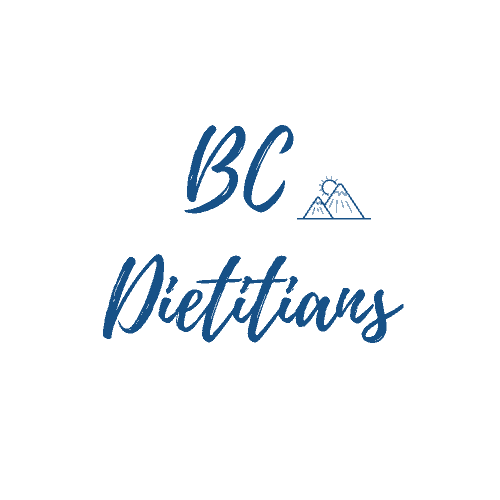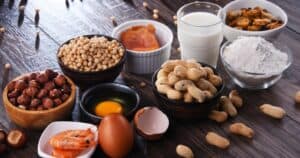Lifestyle advice is more than just weight loss – it encompasses multiple health indicators and constitutes a holistic approach to health. As polycystic ovary syndrome (PCOS) is a complex condition with multiple health risks, it’s important to consider all aspects of well-being. Learn more about the different types of PCOS and why PCOS needs to be diagnosed & treated even if you are not concerned with fertility in our other blog posts.
Not only do women with PCOS struggle to overcome barriers, but all women face numerous barriers to healthy lifestyle change. The available research shows all premenopausal women with or without PCOS are at a higher risk of dropout from nutrition & lifestyle interventions when compared to women of older age (Ee et al). Not to get on another soapbox of feminism and the unequal division of labour at home but women of reproductive age having higher dropout rates could be due to family responsibilities, poor partner support, low mood, lack of childcare for self-care or exercise, fatigue, and lack of time.
Despite knowing what may be healthy, many women still struggle to adopt the changes needed due to the roles and demands women face every day. This blog will outline the barriers women with PCOS may face and offer some strategies to overcome them.
Diets for PCOS + Weight Loss
A healthy diet (paired with regular physical activity) is beneficial for women with PCOS by helping them achieve and/or maintain a healthy weight, regulate hormones, improve metabolic factors (such as insulin resistance) and lead to improved body image. Even a 5-10% weight loss has been shown to improve health outcomes and PCOS symptoms.
Sticking to a diet is tough for anyone, but especially for women with PCOS. PCOS puts women at a metabolic disadvantage, requiring careful planning of macronutrients and foods to maximize satiety and prevent overeating.
Impact of PCOS on Hunger, Cravings & Appetite
PCOS Hormone Levels
The majority of women with PCOS have insulin resistance and subsequently, high levels of insulin (hyperinsulinemia) which may predispose women with PCOS to gain weight (Ee et al). High levels of androgens may also predispose women with PCOS to store fat in their abdomens which can exacerbate insulin resistance (Ee et al).
PCOS & Metabolism
PCOS & Disordered Eating
While weight loss can improve PCOS symptoms, we also need to make sure that we are not worsening any potential negative relationship between food and mental health. Yes, weight loss can help improve the severity of PCOS symptoms but weight loss does not cure PCOS nor does it mean you are healthier!
PCOS Nutrition: Antioxidants
This is a key finding as antioxidants prevent cell damage and disease development, and some may help improve features of metabolic syndrome such as insulin resistance, metabolism of sugars and fats, and inflammation. In this study, the two groups were matched for their BMI, physical activity, income, and education level, removing many confounders. This brings up the question – why are women with both PCOS and metabolic syndrome consuming a diet lower in antioxidants than women with only PCOS?
Metabolic syndrome brings a slew of health concerns to women, on top of their PCOS symptoms. Juggling so many health concerns like high fasting blood sugar, high blood pressure, high cholesterol, high triglycerides, overweight or obesity, and/or hormonal imbalances can make it confusing where to start on your health journey. Dietitians can help you prioritize and focus your strategy to improve your health, taking away the guesswork.
Zinc and PCOS
Zinc is a nutrient to note, as it influences many systems in the body. Several studies have shown that women with PCOS have low serum levels of zinc. Zinc deficiency could be involved in the development of depression, fatigue, insulin resistance, poor immune system functioning, and poor growth of skin, hair, and nails – many of which are related to PCOS (Nasiadek et al).
Zinc plays a critical role in regulating a woman’s hormones while keeping inflammation, fats, and sugars in check. In deficiency, these become unbalanced, causing prerequisites to PCOS and other health conditions. It could be that a dietary deficiency of some of these important nutrients eventually leads to PCOS and metabolic syndrome since deficiency disrupts normal metabolic and endocrine functions.
Best Foods for PCOS: Antioxidants
While these nutrients show promise for women with PCOS, hold off on running to the supplement store. A food-first approach is always more beneficial than mega-dosing with supplements!
Nutrients don’t work in isolation so there is value in getting them through food that has multiple other nutrients and compounds interrelated and interacting with each other.
The best food sources for each nutrient are as follows:
- Selenium: Brazil nuts, seafood, and organ meats.
- Zinc: meat, fish, seafood, and fortified cereals.
- Chromium: present in small to medium amounts in many foods including meats, grain products, fruits, vegetables, nuts, spices, brewer’s yeast, beer, and wine – but amounts vary due to processing techniques.
- Carotenoids: a compound found in plant foods that convert to vitamin A in the body and are found in foods like sweet potato, carrots, pumpkin, spinach, peppers, mangoes, cantaloupe, etc.
- Vitamin E: nuts, seeds, whole grains, fortified cereals, leafy greens, and vegetable oils.
As these are just the highest sources, know that you will get smaller amounts of these nutrients from other foods too.
PCOS and Exercise
- ~20-36 minutes of moderate intensity daily or 4 hours of moderate intensity activity per week
- ~11-20 minutes of vigorous intensity daily or 38 minutes of vigorous intensity activity twice per week
Sleep
Body Image + Depression + Psychosocial Dysfunction
Change Your Habits: Behavioural Strategies
- Goal setting
- Self-monitoring
- Stimulus control
- Problem-solving
- Assertiveness training
- Slower eating
- Reinforcing changes
- Relapse prevention








Add a comment